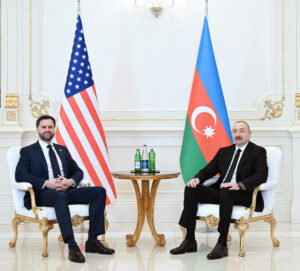Empowering AJK’s Youth: A Blueprint for Regional Growth

Azad Jammu and Kashmir (AJK), with its breathtaking landscapes and vibrant cultural heritage, is a region brimming with potential. Yet, it remains a land where challenges coexist with opportunities, particularly for its youth, who make up a significant portion of the population. Harnessing this potential is not merely an aspiration; it is a necessity for building a prosperous and inclusive future for AJK.
AJK boasts a young and dynamic population, a demographic dividend that, if utilized effectively, can become the cornerstone of its development. According to recent statistics, more than 60% of the region’s population is under the age of 30. This youthful energy holds the promise of innovation, entrepreneurship, and societal transformation.
However, many young people in AJK face obstacles such as limited access to quality education, unemployment, and a lack of platforms for creative expression. These challenges, if left unaddressed, risk turning this asset into a liability. It is imperative to devise and implement strategies that empower AJK’s youth, providing them with the tools to shape their own destinies and contribute to the region’s progress.
Education is the key to unlocking the potential of AJK’s youth. While the region has made strides in improving literacy rates, significant gaps remain in access to quality education, particularly in remote areas. Schools often lack basic infrastructure, trained teachers, and updated curricula that align with the demands of the 21st century.
The government and civil society must prioritize investments in education, focusing on both quantity and quality. Initiatives such as e-learning platforms can bridge the gap for students in far-flung areas. Moreover, vocational training centers can equip youth with skills tailored to local and global job markets. Collaboration with international educational institutions can also open new horizons for AJK’s students.
Unemployment is one of the most pressing issues facing the youth of AJK. Despite the region’s abundant natural resources and strategic location, economic opportunities remain scarce. Young people often migrate to other parts of Pakistan or abroad in search of better prospects, leading to a brain drain that hampers local development.
Promoting entrepreneurship can be a game-changer. Establishing business incubation centers and providing microloans can encourage young entrepreneurs to innovate and create jobs within their communities. The government should also focus on developing sectors such as tourism, agriculture, and technology, which hold immense potential for economic growth. Special economic zones under the China-Pakistan Economic Corridor (CPEC) can be leveraged to attract investment and generate employment opportunities for the youth.
Youth participation in politics is crucial for building an inclusive and democratic society. Unfortunately, young people in AJK often feel excluded from the political process, with decision-making dominated by older generations. This disconnect not only alienates them but also deprives the region of fresh perspectives and innovative solutions to longstanding issues.
Political parties and institutions must create avenues for youth engagement, such as youth wings, leadership training programs, and mentorship initiatives. Encouraging young people to run for local office can also foster a sense of ownership and responsibility. Moreover, incorporating civic education into school curricula can nurture informed and active citizens from an early age.
AJK’s youth are not immune to the challenges of human rights violations and social injustices. Issues such as gender inequality, child labor, and discrimination based on ethnicity or socioeconomic status persist in various forms. Addressing these issues is essential for creating a society where all young people can thrive.
Women and girls in AJK often face additional barriers, from restricted access to education and employment to cultural norms that limit their autonomy. Empowering young women through targeted programs—such as scholarships, skill development workshops, and awareness campaigns—can break these barriers and unlock their potential.
In today’s world, technology is a powerful enabler of development. Yet, the digital divide remains a significant challenge in AJK, particularly in rural areas. Many young people lack access to reliable internet and digital tools, limiting their ability to participate in the global digital economy.
Expanding internet connectivity and providing affordable digital devices can bridge this gap. Initiatives such as coding boot camps, digital marketing training, and freelancing workshops can equip AJK’s youth with skills that are in high demand. Additionally, promoting online platforms for education, commerce, and cultural exchange can create new opportunities for young people.
AJK’s stunning natural beauty is both a blessing and a responsibility. The region faces environmental challenges such as deforestation, water scarcity, and climate change, which threaten its ecological balance and the livelihoods of its people. Youth can play a pivotal role in addressing these challenges.
Climate education and awareness campaigns can inspire young people to become environmental stewards. Initiatives such as tree-planting drives, waste management projects, and renewable energy programs can engage youth in meaningful actions to protect their environment. Collaboration with international organizations can also provide resources and expertise for sustainable development.
AJK’s history is marked by conflict and resilience. For its youth, building a future of peace and stability is not just an aspiration but a necessity. Promoting interfaith harmony, cultural exchange, and dialogue can foster a sense of unity and mutual respect among young people from diverse backgrounds.
Programs that teach conflict resolution, emotional intelligence, and community building can equip youth with the skills to navigate challenges and contribute to a more harmonious society. Art, music, and sports can also serve as powerful tools for bringing young people together and celebrating their shared humanity.
Civil society organizations in AJK have been at the forefront of youth empowerment, from providing education and healthcare to advocating for human rights. Strengthening these organizations and fostering partnerships with international agencies can amplify their impact.
International donors and development partners can play a crucial role by funding programs that align with the region’s needs and aspirations. Exchange programs, scholarships, and joint ventures can provide AJK’s youth with global exposure and opportunities to learn from best practices.
The youth of Azad Jammu and Kashmir are the architects of its future. Empowering them requires a holistic approach that addresses their educational, economic, political, and social needs. It demands collaboration among government, civil society, private sector, and international partners.
As we look to the future, let us remember that investing in youth is not just an investment in individuals; it is an investment in the collective prosperity and resilience of AJK. By empowering its young people, AJK can unlock a brighter, more inclusive, and sustainable future—a future where every young person has the opportunity to thrive and contribute to the region’s progress.


